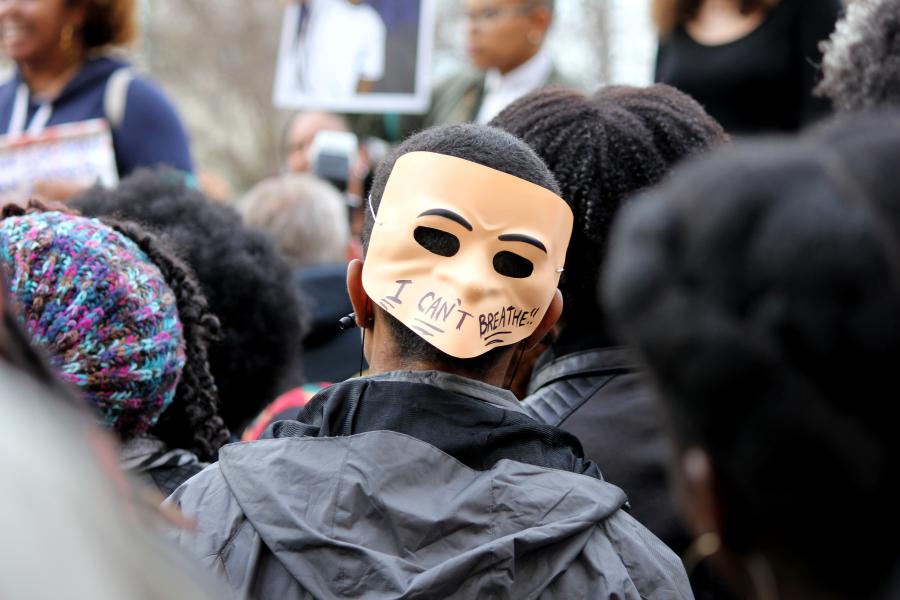Black lives don’t matter, they never have
Police brutality against young Black males in America is nothing new, but has reached a new boiling point this past year. On July 17, 2014 police in Staten Island, New York killed Eric Garner by putting him in a choke-hold. On August 9, 2014, police in Ferguson, Missouri, shot and killed Michael Brown, an unarmed Black teenager.
Out of these nationwide tensions, arose Black Lives Matter, a movement created as a platform to display injustices around the country. Black Lives Matter was introduced to the world via Twitter, during the George Zimmerman court trial, for murdering teenager, Trayvon Martin.
The movement is a way for young, Black people to fight back for our right to live, but has actually been a cold reminder of just how little progress has actually been made in this country.
These three events have sparked protests, and demonstrations around the United States, and specifically in Oakland, even becoming a hashtag on Twitter. Imagine the streets of a major city lined with thousands of people holding signs that read, “No Justice, No Peace” and “Let Freedom Ring”. In a sense, the Black youth are experiencing a second Civil Rights Movement.
Not much has changed for Black people in the past four-hundred years. Since the first Black people arrived in the United States, we have been treated as less than human. We were stolen and sold to unfamiliar masters, chained to one another, and forced to lay on top of one another, like haystacks.
The Black story in America has been one defined by struggle. It seems as if every time we make some headway, it is either met with violence, labels, or just the undermining of our accomplishments.
White America has continued to rob the Black culture. They have taken our sound, our style, our dialect, and have been able to capitalize on it, in a way that not even Black people can. Some feel as if renaming it “urban” is a way to cover up what is blatant theft.
If our culture is not being stolen, then our lives are.
According to The Centers for Disease Control and Prevention, in 2011, Black people were between two to eight times more likely to die at the hands of law enforcement than whites. Annually, a Black person was on average 4.2 times as likely to get shot and killed by a cop than a white person.
The U.S. Department of Justice conducted a study from 2002-2011, published in 2013, states that, In 2011, 460 people died by “legal intervention” involving a firearm discharge, with over 400 being Black. This includes any death caused by a law enforcement or state agent.

Even with these apparent facts, there are still critics of Black Lives Matter, as a movement. Some believe that it is not “fair” to just focus on Black lives, but feel that “All Lives Matter.” All Lives Matter is a separate movement that states that the injustices of all people should broadcasted. Well, obviously, but that is NOT the point. Other critics feel that the message is positive, but feel as if the movement lacks a clear focus, and does not have a clear agenda.
Some opposers have gone as far as to create the counter movement, “Blue Lives Matter,” which was created as a support group for police officers. The Blue Lives Matter Facebook support page states that, “With all these protests and criminals calling for the blood of officers we need to support them now more than ever.” This “movement” is an indication that there are people who just do not get it.
These alarming statistics are a constant reminder that there has not been a whole lot of change for Black people, our issues just take new forms. Black Lives Matter is one small piece of a larger issue: how African Americans are treated in the United States.
The next issue is to figure out how we move past Black Lives Matter as a movement, and actually make Black lives mattering apart of society. It is not exactly clear what actions are needed to take place, but education is always the first step. Black Lives Matter, is the best way to educate the rest of the world on what the Black community has already known.







